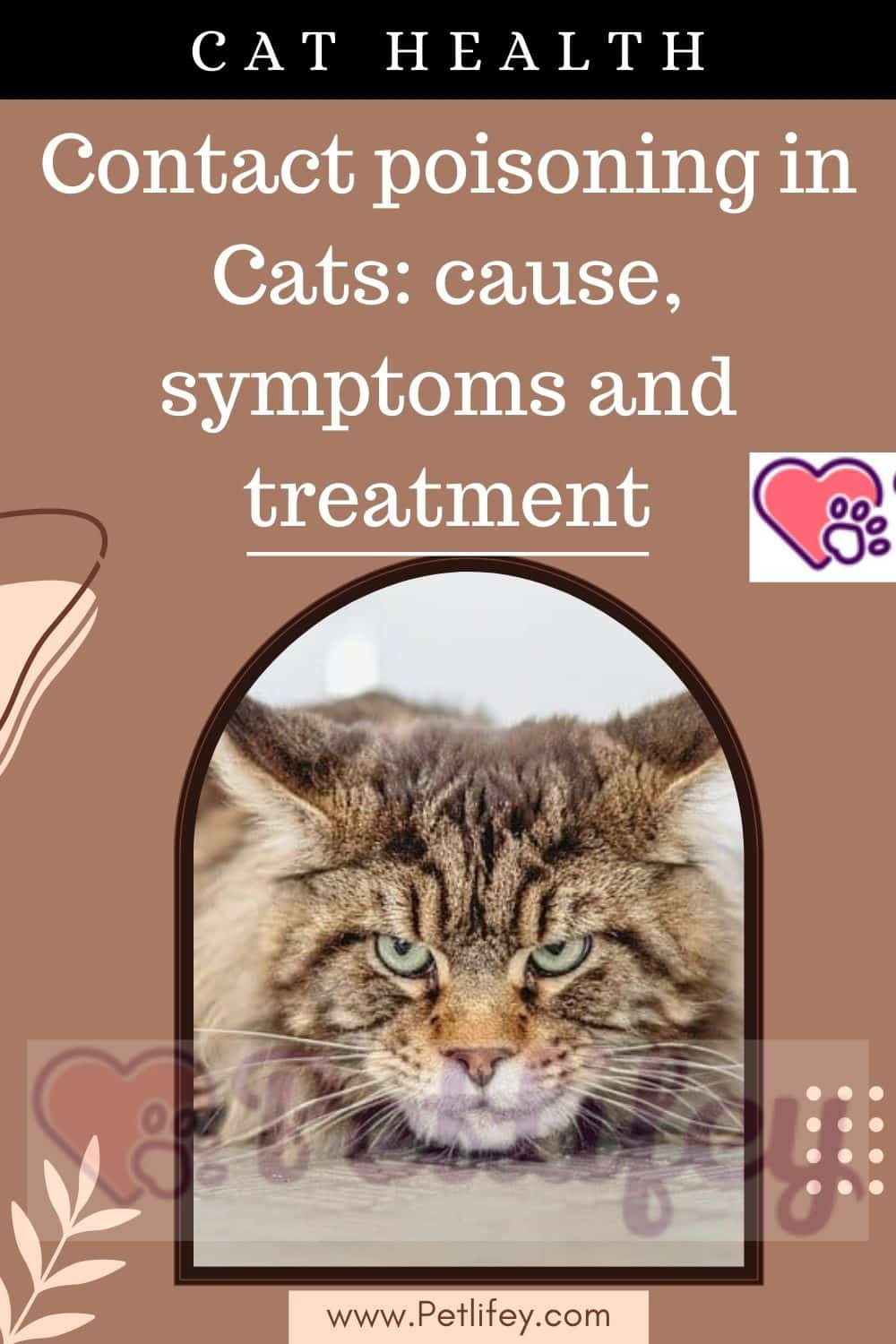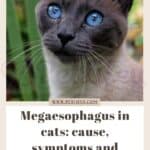Contact Poisoning in Cats: Identifying Causes, Recognizing Symptoms, and Exploring Treatments
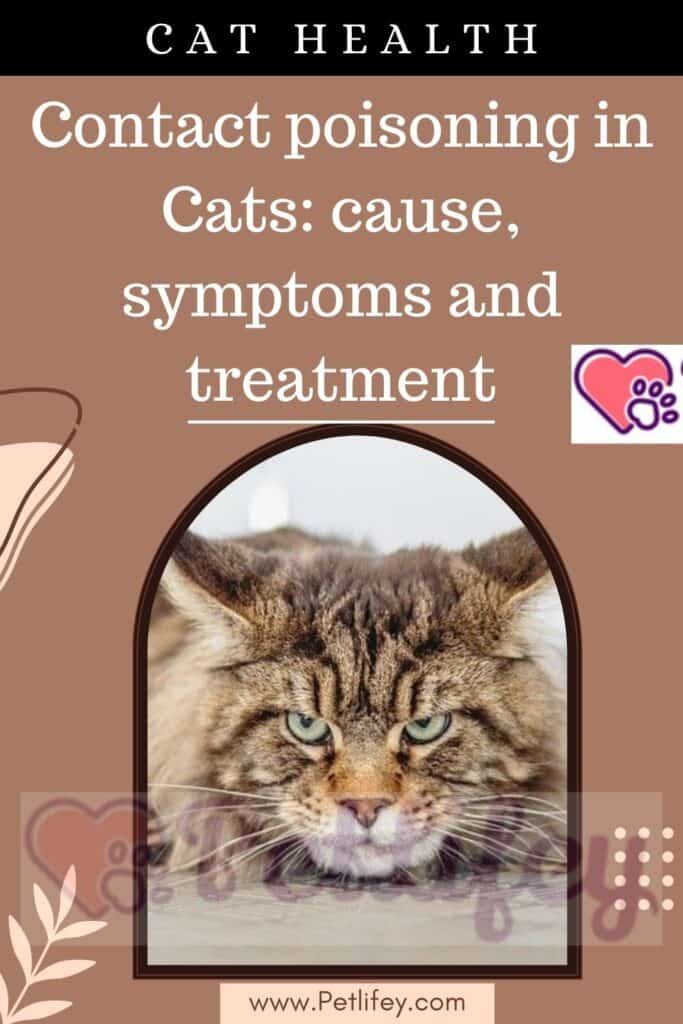
Contact poisoning occurs when your cat comes into contact with substances that are toxic to them. This can happen through various means such as ingestion, skin contact, or inhalation. As a cat owner, it’s essential to understand that despite their cautious nature, cats can still fall victim to poisoning. Their curiosity can lead them to explore areas where they may be exposed to harmful chemicals or plants.
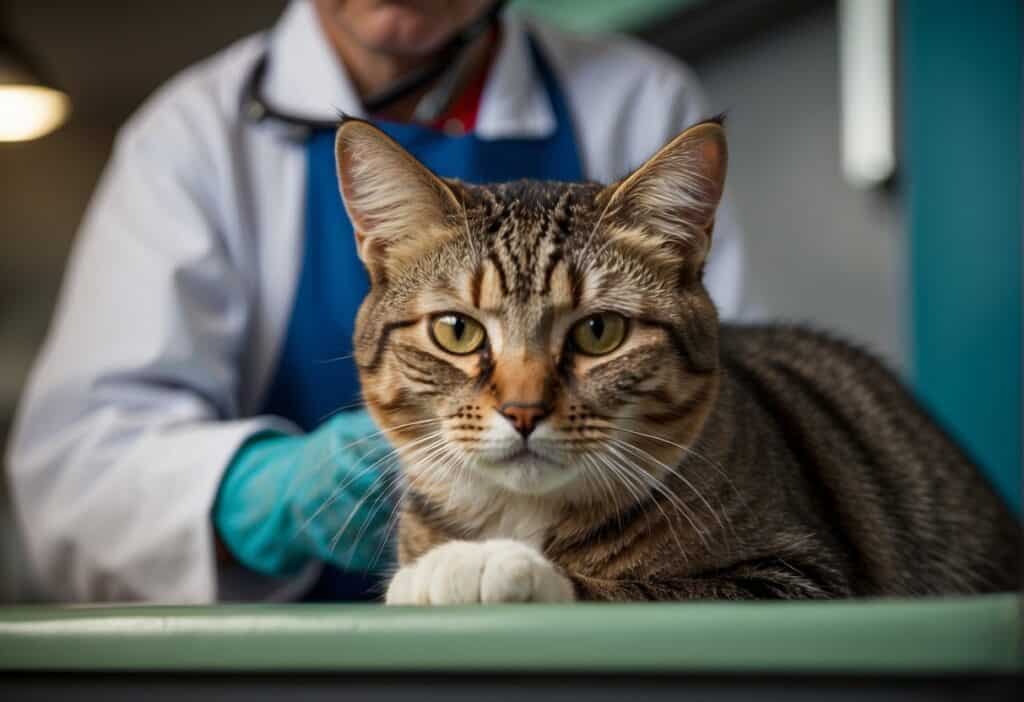
Recognizing the symptoms of contact poisoning in your cat is crucial for their wellbeing. Symptoms can vary but often include vomiting, diarrhea, seizures, and increased respiratory rate. You may also notice signs such as anxiety, excessive vocalization, or changes in skin and eye condition, which can indicate irritation or inflammation from contact with a toxic substance.
If you suspect your cat has come into contact with a poisonous substance, immediate veterinary care is paramount. Timely treatment can significantly increase your cat’s chances of recovery. Remember that preventing exposure to potential toxins is just as important as knowing how to respond to a poisoning incident. Regularly check your environment for toxic substances and keep them out of your cat’s reach to ensure their safety and health.
Understanding Contact Poisoning in Cats
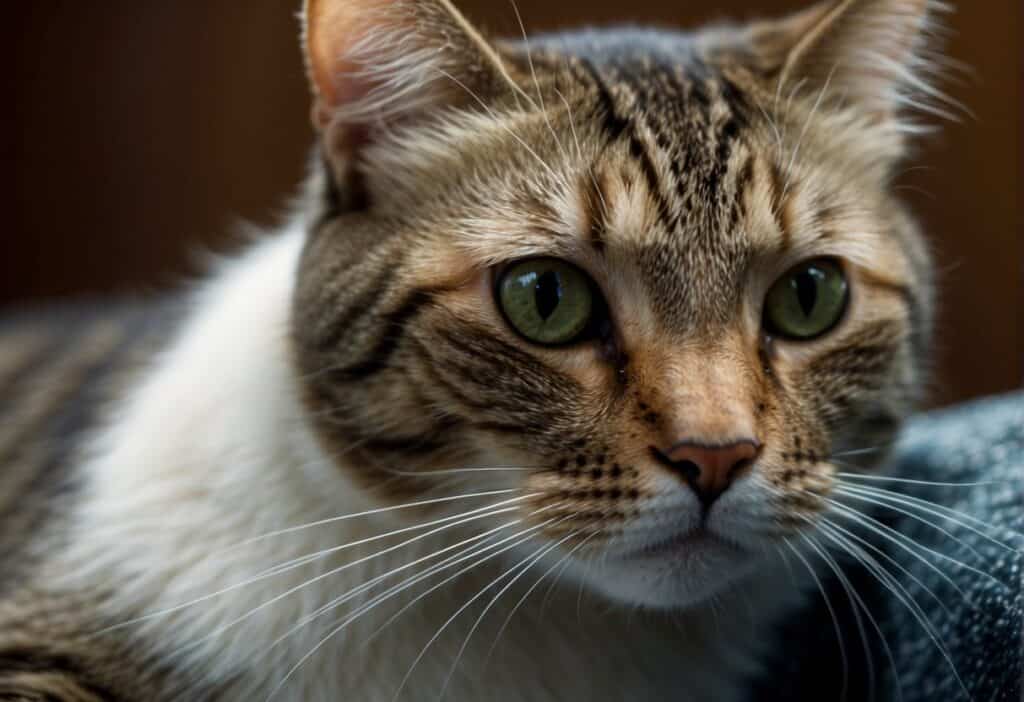
Contact poisoning occurs when your cat comes into contact with substances that are toxic upon touch or ingestion, leading to adverse health effects. Understanding which substances are harmful and recognizing the signs of poisoning can be crucial for your cat’s health.
What Is Contact Poisoning?
Contact poisoning happens when a cat is exposed to a toxic substance, either by direct contact with their skin or, more commonly, through ingestion. When a substance—such as a chemical or plant—is poisonous to cats and they either lick, chew, or otherwise absorb it through their skin, the toxins can rapidly affect their system, leading to a variety of symptoms.
Common Substances That Cause Poisoning
Several everyday substances can cause poisoning in cats:
- Household Products: Cleaning supplies, paint, and other chemicals should be kept away from cats to prevent accidental ingestion. Even small amounts ingested or inhaled can be dangerous.
- Garden Products: Fertilizers, herbicides, insecticides, and rodenticides can be toxic to cats. Ensure these items are stored securely or used in areas away from where your cat roams.
- Antifreeze (Ethyleneglycol): A sweet-tasting, yet deadly liquid often found in garages.
- Human Medications: Aspirin, ibuprofen, acetaminophen, and other over-the-counter or prescription medications should never be accessible to your cat.
- Toxic Plants: Lilies, poinsettias, tulips, daffodils, and many other common houseplants and flowers are poisonous for cats.
- Food: Chocolate, onions, garlic, grapes, and raisins are all toxic foods that should never be fed to cats.
If you suspect your cat has come into contact with or ingested a potentially toxic substance, contact your veterinarian or emergency vet clinic immediately. Time is critical, and the quicker you act, the better the chances of recovery. There is no universal antidote for poisoning in cats, so identifying the toxic substance is essential for targeted treatment.
Symptoms of Poisoning in Cats

When your cat has been exposed to a toxic substance, the physical signs can be acute and alarming. Your swift recognition of these symptoms is pivotal to their health and prognosis.
Recognizing the Signs
Vomiting and Diarrhea: If you notice your cat is vomiting or has diarrhea, these are urgent signs that they may have ingested a poison.
Respiratory Distress: Should your cat exhibit difficulty breathing, this can indicate respiratory involvement due to toxins.
Neurological Symptoms: Seizures, tremors, and twitching are serious neurological symptoms that require immediate attention.
Gastrointestinal Signs: Excessive drooling or abrupt changes in grooming behaviors could suggest oral irritation from a toxin.
Physical Collapse or Lethargy: A sudden collapse or unusual lethargy can be indicative of systemic poisoning.
Altered Thirst and Urination: An onset of excessive thirst or changes in urination are potential signs of poison ingestion.
Your prompt response to these signs, especially if multiple symptoms present simultaneously, could save your cat’s life. Being informed allows you to act quickly and effectively.
Diagnosis and Treatment
When your cat exhibits symptoms of poisoning, an accurate diagnosis and prompt treatment by a veterinarian are critical to increase the chances of a full recovery.
Initial Veterinary Response
Upon suspecting that your cat has been poisoned, your immediate action should be to contact a veterinarian. If possible, bring any substance you suspect has caused the poisoning. The veterinarian will perform a complete physical examination and may conduct blood tests, urinalysis, and other diagnostic measures to identify the poison. Inducing vomiting is often the first line of defense if the toxic substance was ingested within the last two hours, unless the substance is caustic or a petroleum product.
Activated charcoal may also be administered, as it can absorb a large amount of ingested poison, reducing absorption in the gastrointestinal tract. Treatments may vary depending on the poison involved, but the goal is to stabilize the cat and prevent further absorption of toxins.
Specific Treatments
The specific treatments will depend on the toxin involved. A vet may administer medications to counteract the poison (antidotes) or to treat symptoms. In cases of poisoning that affect the gastrointestinal system, supportive care such as fluids and medications to protect the stomach may be necessary.
For substances that have penetrated the skin, your veterinarian may treat with baths or topical medications. If kidney function has been compromised, treatments may include dialysis or other supportive measures to manage kidney failure.
Throughout the treatment process, supportive care, such as IV fluids, is crucial to maintain hydration and support vital organ functions. It is essential to follow the veterinarian’s instructions and complete any prescribed course of treatment, which may include follow-up visits to ensure the poison has been effectively neutralized and that recovery is on track.
Preventing Contact Poisoning
Ensuring the safety of your cat from contact poisoning involves being proactive and cautious with the substances you allow in their environment. By adopting secure household and garden practices, the risk of accidental ingestion of toxic substances can be significantly reduced.
Safe House and Garden Practices
Secure household cleaners such as detergents, disinfectants, and other cleaning products to make your home a safe environment. Store them in locked cabinets or high shelves, out of your cat’s reach. Be mindful that even a small leakage or residue can pose a risk.
Be cautious with human foods. Many foods that are safe for you are poisonous to cats. Keep foods like chocolate, grapes, and onions safely stored away. Similarly, ensure that human medications and drugs are never accessible, as even a single pill can be lethal.
When it comes to your garden, choose plants wisely. Some plants are toxic to cats, and even pesticides or fertilizers can be harmful. Refer to resources like the ASPCA or Animal Poison Control Center for a list of safe plants and substances.
If you suspect that your pet has come into contact with a harmful substance, do not hesitate to contact your veterinarian or the Pet Poison Helpline immediately. Early intervention is the key to effective treatment and prevention of serious health consequences.
What to Do If Your Cat Is Poisoned
When you suspect your cat has been poisoned, it’s critical to act swiftly and rationally. Quick recognition and response can save your pet’s life.
Immediate Actions
- Identify the Poison: If you can, determine what substance has poisoned your cat. Be it chemicals, human medications, or toxic plants, this information can be crucial for treatment.
- Prevent Further Exposure: Immediately remove any remaining toxic substance from reach. If the poison is on the cat’s skin or fur, lightly wash the area with mild dish soap and rinse thoroughly, but do not induce vomiting unless instructed by a professional.
- Gather Information: Prepare details of what happened, including the type of poison, the amount your cat was exposed to, and when the exposure occurred.
- Stay Calm: Your cat needs you to be composed to effectively manage the situation.
When to Contact the Vet
- Immediate Vet Contact: Call your vet or the nearest emergency veterinary clinic right away. If these are not available, contact a dedicated animal poison response service like the ASPCA Animal Poison Control Center or the Pet Poison Helpline.
- Transport to the Vet: While waiting for professional advice, remain ready to transport your cat to the vet, ensuring to keep them calm and contained during transit.
Note: Do not wait to see if symptoms develop. The early stages of poisoning might not display immediate symptoms, and rapid treatment is often essential.
Recovery and Long-Term Care
After your cat has been treated for poisoning, the recovery phase is crucial to ensure they return to health while minimizing long-term complications.
Managing Health Post-Poisoning
Monitor Kidney Function: Your veterinarian may recommend regular blood work to check your cat’s kidney function, as poisoning can lead to kidney disease, a common long-term effect.
- Follow-Up Appointments: Schedule follow-up appointments to monitor recovery progress and adjust treatment plans as necessary.
- Diet and Hydration: Provide a diet that supports renal health, and ensure constant access to fresh water to encourage hydration.
- Environmental Safety: Remove any potential toxins from your cat’s environment to prevent re-exposure.
Note: Always adhere to veterinarian instructions for medication and care. Quick action and thorough care can significantly improve your cat’s chances for a full recovery.

